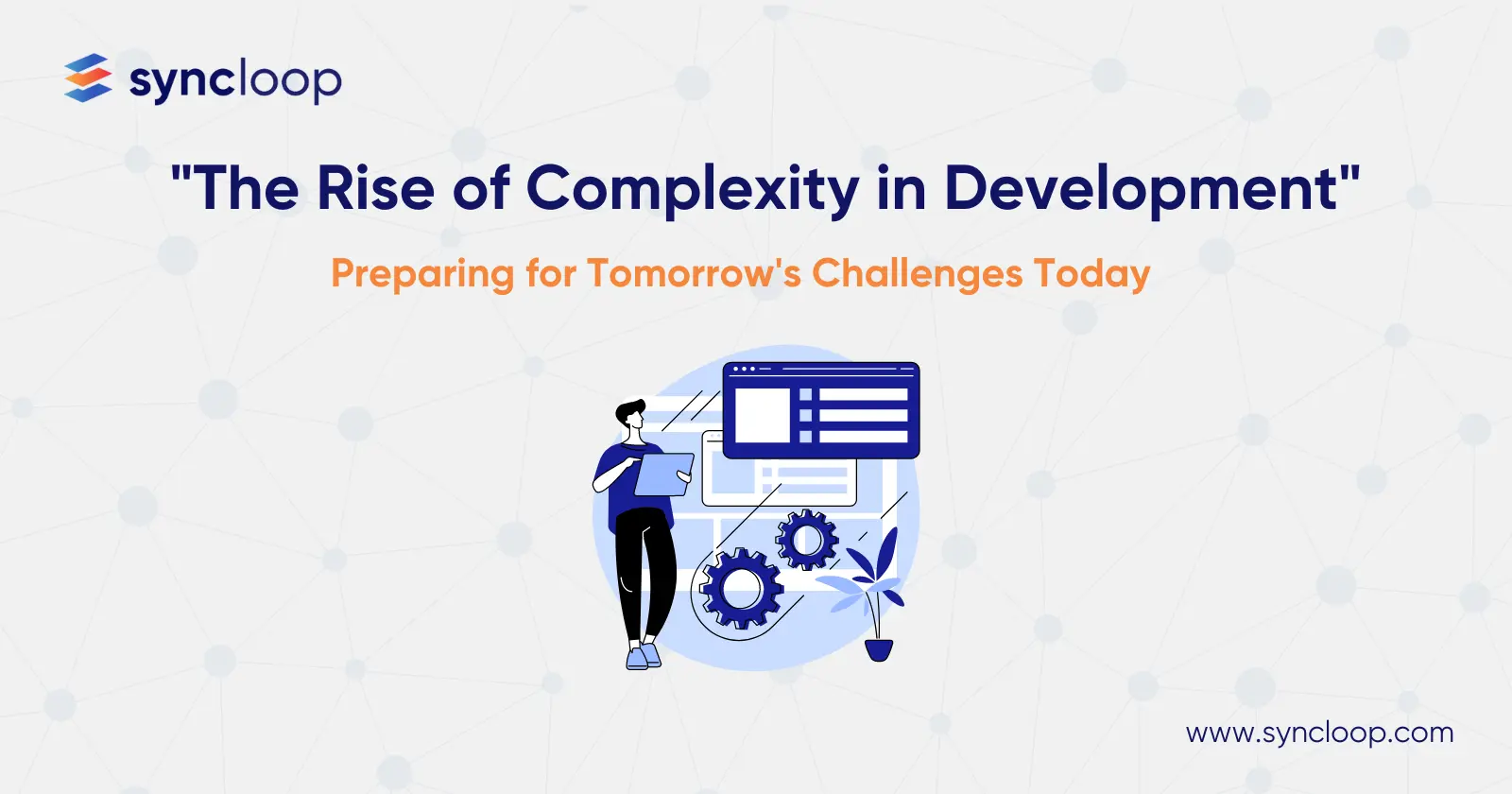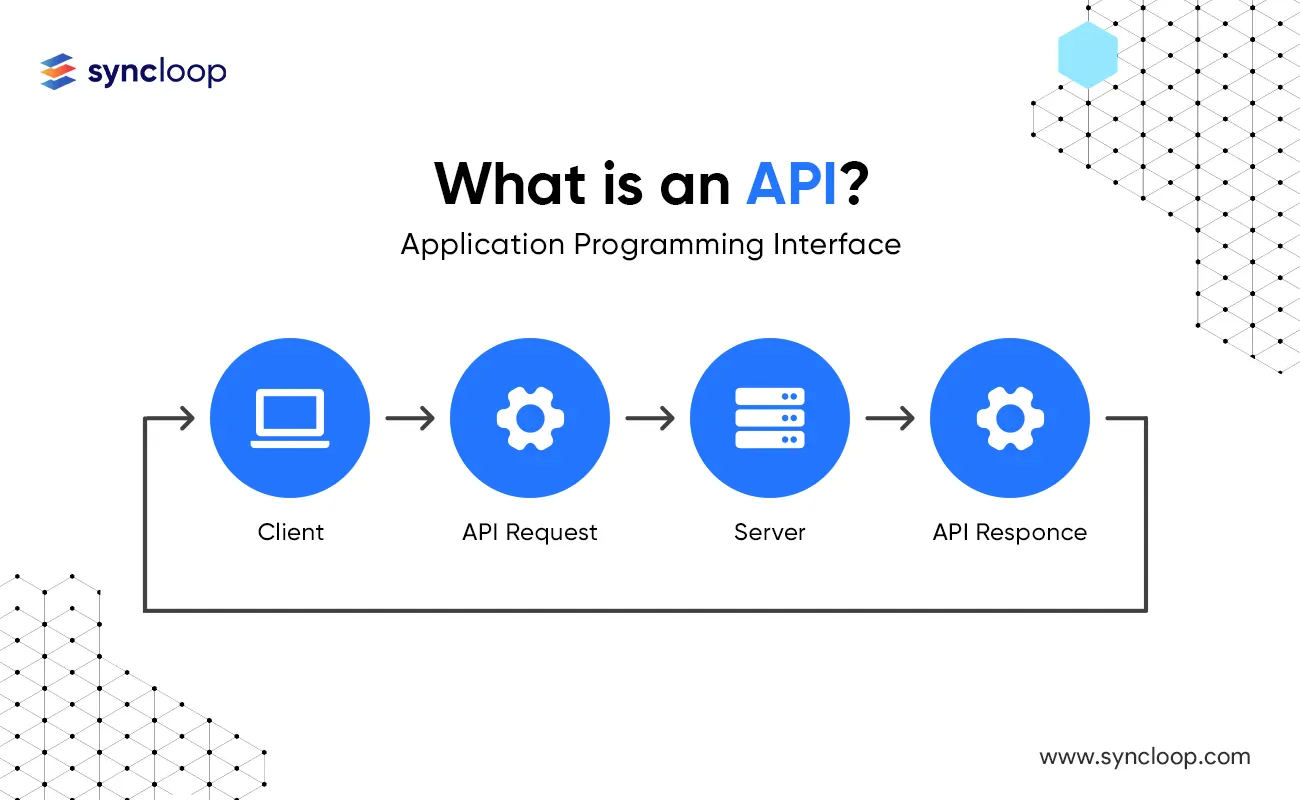The Rise of Complexity in Development: Preparing for Tomorrow's Challenges Today
Posted by: Prerna | June 13, 2024

Categories: API, Complexity, Software Integration, API Security
In the world of software development, complexity is not a new concept. With the constant evolution of technology and the ever-changing needs of businesses, developers have been tackling increasingly complex problems for years. However, the rate at which complexity is growing is set to accelerate in the coming years. Emerging technologies such as Artificial Intelligence (AI), the Internet of Things (IoT), and blockchain will continue to disrupt the development landscape, creating new challenges and requiring developers to stay ahead of the curve. In this blog post, we explore how development complexity is about to grow and the steps that developers can take to prepare themselves for tomorrow's challenges today.
The growing complexity of development: next big challenge in API development
In today's fast-paced world, technology is evolving at an unprecedented rate. As technology continues to advance, development complexity is also growing at an exponential rate. Software applications and systems that were once simple have become increasingly complex over the years, requiring more resources, more time, and more expertise to develop and maintain.
This growing complexity is a challenge for developers and businesses alike. As systems become more complex, they require more sophisticated programming and development techniques to ensure they are reliable, secure, and efficient. Developers are faced with new challenges in ensuring the stability and scalability of software applications, as well as the safety and security of users' data.
The major factors driving the rise of complexity in development is the increased use of APIs in applications and pace of app development. APIs are an essential part of modern software development, enabling different applications to communicate with each other. However, integrating APIs can be complex and presents unique challenges for developers. The complexity in development doesn't solely arise from APIs themselves, but rather from integrating across applications, the rapid pace of technology stack changes, and evolving customer demands. APIs can be a solution if implemented correctly. They offer flexibility and agility, allowing seamless integration of applications. However, building and maintaining APIs can be challenging, requiring thoughtful design, effective communication, and ongoing maintenance for reliability and security. Well-designed APIs will remain crucial as we move forward, demanding proactive attention to tackle this challenge.
Another key concern with API development is security. APIs can create potential vulnerabilities in the system, and ensuring secure integration requires careful planning and attention to detail. Even minor mistakes or oversights can lead to significant security breaches that can have far-reaching consequences for businesses and users alike.
Another challenge associated with APIs is onboarding. Ensuring that APIs are properly documented and easy to use is essential for encouraging adoption by other developers and users. Developers must provide clear instructions on how to integrate the API, what resources are required, and how to handle potential errors or exceptions.
System integration is another challenge of API development. Integrating multiple APIs and systems requires a significant amount of coordination, testing, and troubleshooting to ensure that everything works seamlessly. Developers need to ensure that the APIs work well together and that any data transmitted between them is accurate and consistent.
The rise of cloud computing, the Internet of Things (IoT), and other advanced technologies are also driving the complexity of development. With the proliferation of devices and platforms, developers must create software applications that work seamlessly across a variety of devices and operating systems. They must also ensure that applications can handle vast amounts of data and work with complex infrastructures and architectures.
In summary, API development presents unique challenges for developers that require careful planning and attention to detail. Security risks, onboarding difficulties, and system integration issues are just a few of the challenges that must be addressed when working with APIs. However, with careful planning and attention to detail, developers can successfully navigate these challenges and take advantage of the benefits of APIs to build more robust and interconnected applications.
Preparing for Tomorrow's Challenges Today: Strategies for Coping with Development Complexity
As software development continues to become more complex, it's essential to prepare for the challenges that will arise in the coming years. Fortunately, some strategies can help cope with the rising complexity of development.
API development is gaining traction as a solution for integrating different software applications. APIs, known as application programming interfaces, provide the necessary protocols and tools to enable seamless communication between applications. Through API development, developers can create a robust solution to effectively manage and integrate disparate systems, applications, and data sources.
One notable advantage of API development is its ability to break down data silos and foster a unified view of an organization's data. This aspect holds particular significance for businesses operating with multiple departments and isolated software applications. By focusing on API development and ensuring effective integration, businesses can easily share and analyze data, leading to improved decision-making capabilities and driving substantial growth.
API development plays a pivotal role in supporting real-time data sharing and synchronization across platforms, offering invaluable benefits to businesses reliant on data-driven decision-making. Through the use of APIs, data can be instantly and automatically shared, empowering businesses to swiftly respond to market changes and maintain a competitive edge.
Moreover, API development provides a means to modernize legacy applications by enabling their interaction with newer, more advanced software systems. This enables businesses to capitalize on their existing investments in legacy systems while seamlessly adopting new technologies to stay ahead in the competitive landscape.
However, it is crucial to acknowledge that the ascent of API development is not without challenges. The competitive nature of the software industry has led to increased technological complexity, often resulting in businesses relying on multiple APIs from diverse providers. Thus, a robust API management strategy is essential to ensure seamless and effective collaboration among APIs.
In summary, API development serves as a powerful solution for managing and integrating disparate systems, applications, and data sources. It facilitates the breakdown of data silos, supports real-time data sharing and synchronization, modernizes legacy applications, and empowers businesses to outperform their competitors. As the complexity of development continues to evolve, embracing API development and complementary strategies is vital to effectively tackle the challenges of tomorrow.
The Future of API
APIs are undoubtedly a crucial part of modern application development, enabling seamless integration with third-party software and services. As the technology landscape continues to evolve, we can expect to see APIs becoming more sophisticated and complex. However, with the right tools and strategies in place, developers can overcome these challenges and continue to innovate.
One of the most exciting developments in API development is the emergence of new tools that streamline the development process. These tools can automate tasks like code generation, testing, and deployment, reducing the time and effort required to build and maintain APIs. As a result, developers can focus more on creating value for their users, rather than getting bogged down in technical details.
In addition to improved tools, we can also expect to see a greater emphasis on ease of integration with third-party APIs. With so many services available, developers need to be able to seamlessly connect different APIs without worrying about compatibility issues. By adopting industry-standard formats and protocols, developers can ensure that their APIs are interoperable and compatible with a wide range of platforms.
Testing and deployment will also become increasingly important as APIs become more complex. With so many moving parts involved, developers need to be able to thoroughly test their APIs to ensure that they function as intended. Automated testing tools can help streamline this process, making it easier to catch bugs and issues before they cause problems in production.
Finally, maintenance will continue to be a key aspect of API development in the future. As APIs become more widely adopted, developers will need to be able to monitor and manage their APIs to ensure they remain performant and reliable. Automated monitoring tools can help identify issues early on, enabling developers to fix them before they impact users.
In a Nutshell
The world of development is about to get a lot more complex, with API development leading the charge. To prepare for the challenges ahead, developers must focus on strategies to cope with this complexity today. The future of APIs will require advanced technologies, and those who fail to adapt will be left behind. With the rise of the API economy, it is becoming increasingly difficult to develop API unless you’re a good developer. This is where API development platforms can help a lot. The API development platforms can solve a lot of problems like for example, you don’t have to worry about the scalability of the application as you only have to focus on the development of the API. Apart from that, you also don’t have to worry about the dependencies of the API since those platforms come with a lot of integrations that reduce a lot of development time resulting in the cost and time saving.
Syncloop is one of the API development platforms that you can use to solve all your API development problems. With more than 999+ integrations, it will drastically reduce the API development time and with all the monitoring capabilities you can even monitor all your APIs in real-time.
Back to Blogs

